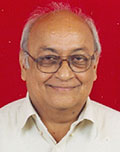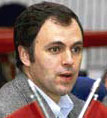Fresh start and new dangers
30 Dec 2008
 Few recent elections have proved as full of surprises as the recently concluded state assembly polls in Jammu and Kashmir. The questions abound.
Few recent elections have proved as full of surprises as the recently concluded state assembly polls in Jammu and Kashmir. The questions abound.
Why did all but an urban stratum of the population ignore the Hurriyat co-ordination committee's call for a poll boycott? Does this mean that the secessionist movement in the valley has died out?
 How did the National Conference manage to hold on to the same number of seats as it had in 2002 inspite of being the party most closely associated with the military rule of the past two decades? Is that another sign that the past has been laid to rest and secessionism is dead?
How did the National Conference manage to hold on to the same number of seats as it had in 2002 inspite of being the party most closely associated with the military rule of the past two decades? Is that another sign that the past has been laid to rest and secessionism is dead?
What significance should we attach to the jump in the BJP's seats in Jammu? Is this their dividend from their sponsorship of the violent economic blockade of Kashmir in July?
And lastly, why was there no attempt by the jihadis from across the LoC or their local surrogates to discourage voters by killing candidates and their party workers?
There may be no completely satisfactory answer to all of these questions, but the voting pattern gives us some strong clues. The jump in the vote from 44 per cent in 2002 to 61 per cent this year was a convincing rejection of the Hurriyat's boycott call. But it is more than that. Although a majority of the voters interviewed by the media said that they were not voting on 'the main issue' but simply taking control of their day to day lives, this is a sophistry, for there is no middle ground between the bullet and the ballot. The decision to change anything at all through the one is a complete rejection of the other.
But it remains a partial rejection. The voting pattern shows that 'separatism' has not died, but become more localised. Today it is almost as strong as it ever was in Srinagar, Sopore, Baramulla and Anantnag. While the government has been congratulating itself on the jump in the turnout in Srinagar from barely five per cent in 2002 to 20 per cent this year, it has chosen to forget that in a truly free and contested election, such as that of 1983, the turnout in the city was over 80 per cent. In other words 60 per cent of the population of Srinagar, which had exercised its vote regularly before the outbreak of insurgency in 1989, still chose to 'vote' against the present setup by abstaining.
The abstention is significant because except in China nearly every successful rebellion has begun in the cities and has been led by precisely the kind of people who remain alienated today.
These are the urban , educated, insecure but aspiring middle class. Even in the rest of the valley, the average vote has remained twenty or more per cent below that of 1983. Even Bandipore's much quoted 56 per cent turnout was 23 per cent below that of 1983. There is thus a stratum of support for the separatists still very much alive in the valley, although it is substantially weaker than at its height in 1996 and 2002.
The National Conference's strong performance is perhaps the biggest surprise of all. But a closer look shows that it owes its success almost entirely to the success of the Hurriyat's boycott call in Srinagar and other cities. Ironically, this call kept at home precisely those who would have gone out to vote for the PDP. Luck too has played a part, for in several of the Srinagar seats it has won by as few as 13 to 70 votes.
The true strength of the two parties is reflected by their share of the vote. That of the NC has actually gone down by about four per cent while that of the PDP has gone up by six. The voting pattern also reflects a sectarian bias. But the way it is being interpreted by the instant pundits of Delhi is hopelessly wrong. The PDP has gained the support of the Jamaat -I - Islami of Kashmir and of the Ahl-e-Hadis. But neither of these groups wants Kashmir to secede from India. But both want the peace process with Pakistan to continue and support Mufti's call for 'self -rule' within the framework of the Indian union.
Unlike the NC, which is prepared to seek autonomy within the present constitution, the PDP believes that changes such as the gradual elimination of borders between the two Kashmirs and the establishment of consultative mechanisms between them are necessary to give Pakistan a sense of achievement and a reason to leave Kashmir alone in the future.
Where communalism has raised its head is in Jammu. The BJP has won nearly all of its 11 seats in the Hindu heartland of Jammu, Kathua and Samba. The PDP too has registered gains in Jammu, but only in the Muslim belt. This is the BJP's payoff for fomenting the anti-Kashmir riots and blockade over the Amarnath shrine in July.
But there is a lesson in this for the Congress also. Throughout that crisis it played a 'soft' communal card, never daring to challenge the BJP for fear of losing 'the Hindu vote' and thereby leaving the Kashmiris defenceless. In the process it lost not only the vote but also its remaining claim of secularism.
Finally, Kashmir remained free from violence not only because Pakistan showed no inclination to send any Mujahideen but also because in July the Hurriyat co-ordination Council specifically told them to stay away, as it intended to achieve its goals peacefully. Its call was endorsed by Syed Salahuddin from Muzaffarabad.
Had the Hurriyat not also issued a call to boycott the elections, the PDP would have emerged as the largest single party, and would have been in a position to take the peace process forward. Today, that onerous task is going to fall on the shoulders of the National Conference.
Only Omar Abdullah has the courage and clear-sightedness to pursue it in an inclusive manner, without leaving the Hurriyat or the PDP out.
Kashmir's, and possibly the entire subcontinent's future therefore rests on the shoulders of one young man.



















